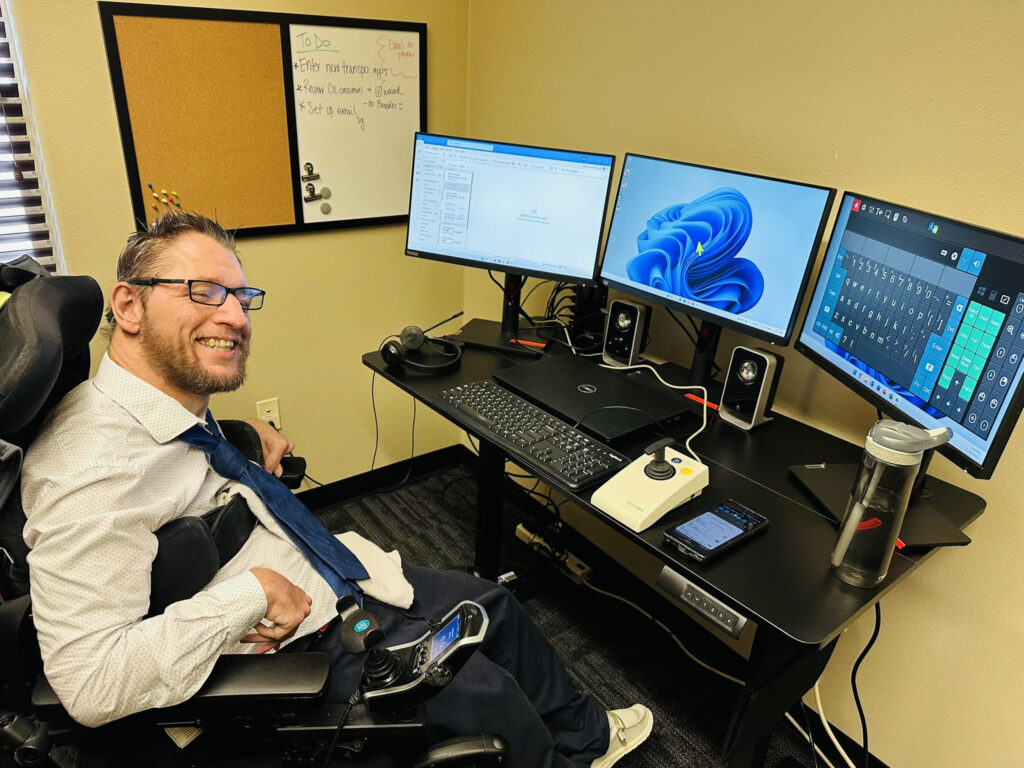Boise, Idaho – LINC

I was born in Las Vegas. In 2011, I moved to Meridian and now I live in Boise with my wife, Robin. I was born with cerebral palsy, and I don’t have the ability to walk, so I use a wheelchair. I was a little bit of an advocate for myself in Las Vegas, but I feel like I didn’t really find my voice to fight for people with disabilities until 2019 when I got involved with the Living Well Project that was run by the Idaho Council on Developmental Disabilities.
Public transit, especially paratransit in Boise, is extremely limited. My wife is also disabled, and because of liability insurance rates, there are no vehicles that can transport us at the same time. Without good public transit, it’s like you are living on a lonely, desert island.
I would really like to see Boise’s transit system improved. I’ve been doing disability rights advocacy for 5 years and have been working with LINC, the Living Independent Network Corporation, as their transportation specialist. LINC’s mission is to empower Idahoans with Disabilities across the lifespan to achieve our desired level of independence. I believe having a good transit system is key to being able to live independently.
I live and work in Boise, but the transportation I support operates in Southern Idaho, in Twin Falls and Jerome County. That gives me first-hand experience also dealing with the unique rural transit issues that families in that area face. Not only is paratransit and the public transit system thin in large cities like Boise, but it’s also basically non-existent in rural locales.
Because of the lack of public transit and paratransit system here, for me to go to the office, which is only 15 minutes away, I must get a non-emergency medical transport van ride which costs me $160. This past Christmas, my wife and I went over to my mom’s house. The local companies know that we have limited access, and they know they can charge whatever they want. Even though her house is only 15 minutes away, the paratransit company charged us $316 roundtrip. That is literally highway robbery.
I think we need to really start investing more money into our public transit system not only for people with disabilities, but for everyone. If I oversaw the public transit system, I would make it free for people living with disabilities. I’d make sure that the system could take people door to door on where they needed to go. In rural places like Idaho, it is very important to think about what a lot of us call the first mile, last mile. That means making sure that people can get access to the larger system even if they live far away from the closest stop.
It’s vital that we invest more money in transit operations. I think it’s important for all Members of Congress to also understand what it is like for people living with disabilities. I would like to ask them how they would afford the everyday challenge people like me face when we have no, or very limited, transportation access.
